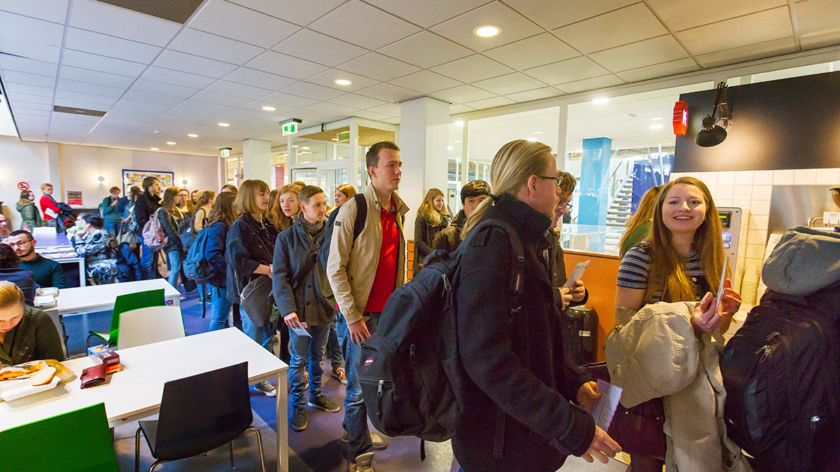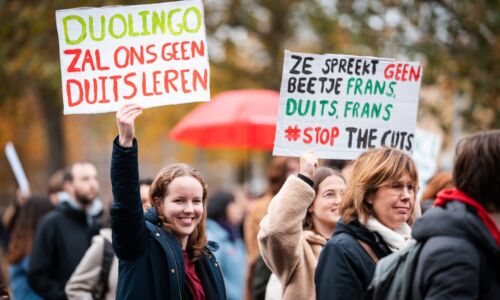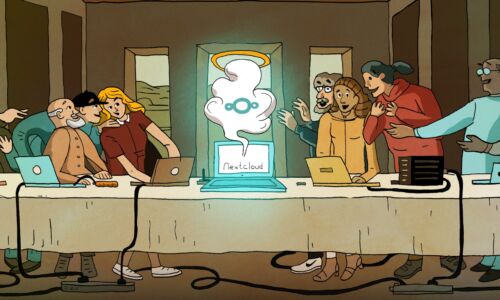Polling station Refter: back and forth on the left
-
 Students voting in de Refter. Photo: Dick van Aalst
Students voting in de Refter. Photo: Dick van Aalst
The parties D66 and GroenLinks have obtained the majority of the votes (67,4 percent) in the polling station in the Refter. In the Nijmegen municipality, they got 39,6 percent. An analysis of the voting results in Nijmegen shows this.
Voters in the Refter are clearly (left-winged) progressive. The final results of last week’s elections show that D66 (33,9 percent) and GroenLinks (33,5 percent) both have enough votes for an imaginary majority in the Dutch Cabinet. This is a lot more than in the rest of the municipality, where both parties got 19,5 (D66) and 20,1 percent (GroenLinks) of the votes. The number of votes for the more conservative left-winged party SP dropped dramatically: 3 percent instead of the 9,2 percent in 2012. In the rest of Nijmegen, 11,2 percent of the people voted for SP.
The media focused a lot on populism in this year’s election, but the phenomenon did not do its work with students and employees at Radboud. Geert Wilders’ PVV did not get past 0,7 percent of the votes at the Refter.
Musical chairs
Traditionally, Nijmegen is known for its left-winged stances. Voters in the municipality moved from the PvdA, the labour party, to GroenLinks, D66 or Partij voor de Dieren (the ‘animal party’) this year. Nijmegen supporters of the right-winged parties are a bit more loyal. During the last three elections, their number of votes stays more or less the same. VVD gets around 15 percent and PVV 10 percent. The voters’ fickleness mostly affects the left part of the political spectrum.



